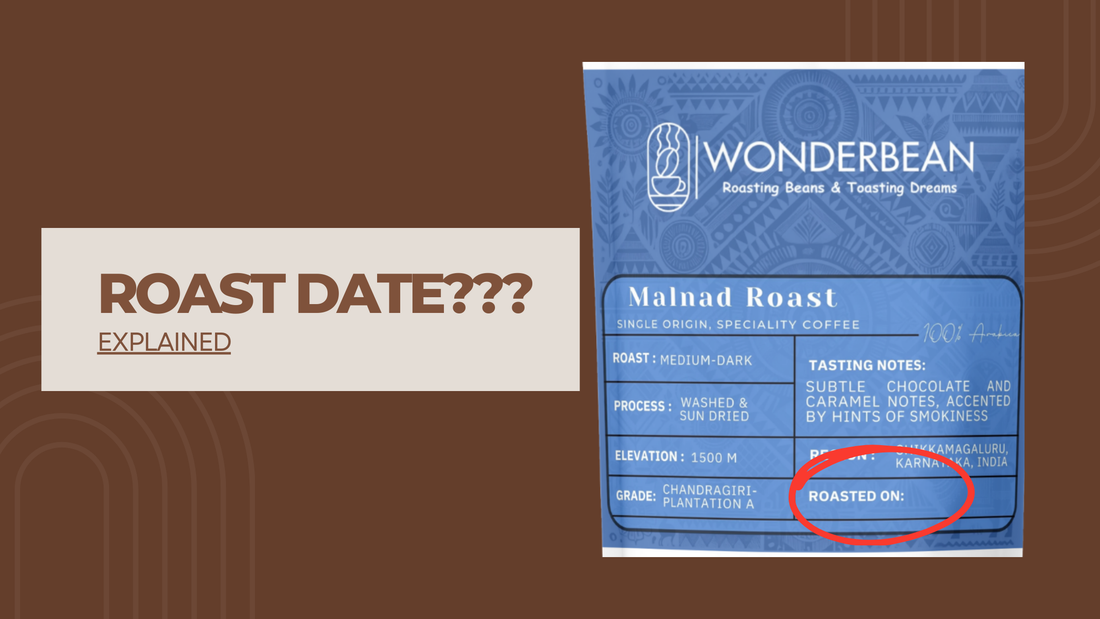
Roast Date Explained: When to Buy & Brew Your Coffee
Roast Date Explained: When to Buy & Brew Your Coffee
For many coffee drinkers, freshness is a word they hear often—but what does it actually mean? Why do specialty roasters proudly stamp a roast date on their bags, while supermarket coffees stick to expiry dates that may be months (or even years) away?
If you’ve ever wondered when you should buy, rest, and brew your beans for the best taste, you’re in the right place.
What Is the Roast Date?
The roast date is simply the day your beans were roasted. From that moment, the coffee begins a fascinating journey: releasing carbon dioxide, evolving in flavor, and gradually losing its vibrancy.
Here’s the key: the roast date isn’t about when your beans “go bad,” but about when they taste best. Specialty coffee is all about capturing beans at their peak—when the aroma, sweetness, and complexity are shining brightest.
The Life Cycle of Fresh Coffee
Day 0–6: Degassing Phase 💨
-
Beans release carbon dioxide after roasting.
-
Brewing too early can lead to sour, uneven extractions, especially with espresso.
-
This is the resting stage—let the beans breathe.
Day 7–40: The Flavor Sweet Spot 🌟
-
Coffee is now balanced and ready to shine.
-
Expect vibrant aromas, notes of chocolate, caramel, fruit, or nuts depending on origin.
-
Mouthfeel is smooth, velvety, and satisfying.
-
This is when specialty coffee is truly at its best.
After 40 Days: The Gradual Decline ⏳
-
Oxidation starts to mute flavors.
-
Coffee is still drinkable but lacks complexity.
-
You may notice a flatter taste, with fewer distinct notes.
When Should You Buy and Brew?
✔️ Buy: As close to the roast date as possible.
✔️ Rest: Allow 3–6 days before brewing for best results.
✔️ Enjoy: Within 4–6 weeks for peak flavor.
Pro Tip: Buy in small batches rather than stocking up. Fresh coffee is meant to be enjoyed, not stored away.
Why Roast Date Matters
Coffee is a living product. From the soil and altitude where it was grown, to the way it was processed, to the moment it was roasted—every step influences the final cup. Respecting the roast date means respecting that journey.
When you brew within the optimal window, you’re tasting coffee the way the roaster intended: full of life, nuance, and character.
Common Questions About Roast Date
☕ Does coffee expire?
Coffee doesn’t spoil like milk, but it stales. Old beans lose aroma and flavor, resulting in a flat or cardboard-like taste.
☕ Can I drink coffee after 2 months?
Yes, it’s safe—but the flavors won’t be as vibrant. Think of it as the difference between fresh-baked bread and bread that’s been sitting out too long.
☕ Why do supermarkets only show expiry dates?
Mass-market coffee is often roasted in bulk and stored for months. Expiry dates (usually 9–12 months from roasting) don’t highlight freshness, just shelf life. Specialty coffee is different—it celebrates freshness and transparency.
☕ Is grind size linked to freshness?
Yes! Grinding accelerates staling. For best results, buy whole beans and grind just before brewing.
The Takeaway
The roast date is your roadmap to great coffee. It tells you when your beans began their journey, and guides you on when to brew them for the best experience.
-
Buy beans close to their roast date.
-
Let them rest a few days.
-
Brew and enjoy within a month for peak flavor.
In specialty coffee, timing is everything. Pay attention to the roast date, and you’ll taste the difference in every sip.

